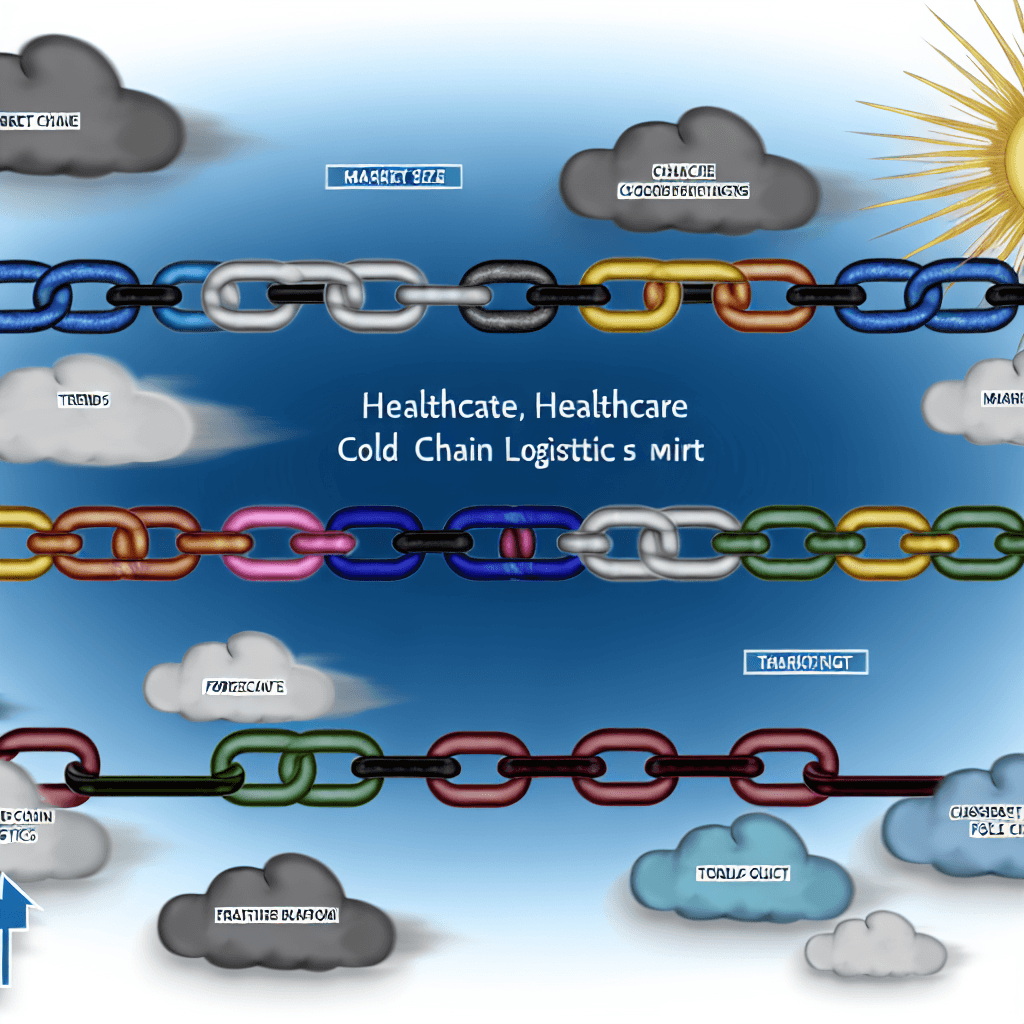Explore the latest trends, market size, and forecasts in the healthcare cold chain logistics industry.
Healthcare Cold Chain Logistics Market Size, Share, Trends & Forecast

Table of Contents
Healthcare Cold Chain Logistics Market Size, Share, Trends & Forecast

The healthcare cold chain logistics market is a critical segment of the healthcare industry, ensuring the safe transportation and storage of pharmaceuticals, biologics, and other temperature-sensitive healthcare products. This article explores the current market size, shares, trends, and forecasts, providing a comprehensive overview of this vital industry.
Understanding Healthcare Cold Chain Logistics
Cold chain logistics refers to the process of maintaining a consistent temperature-controlled supply chain for products that require specific temperature conditions. In the healthcare sector, this includes a wide range of products such as vaccines, biopharmaceuticals, clinical trial materials, and certain diagnostic kits. The integrity of these products can be compromised if exposed to temperature variations, making cold chain logistics essential for ensuring their efficacy and safety.
Current Market Size and Share
The global healthcare cold chain logistics market has been growing steadily over the past few years. According to a recent report by Grand View Research, the market was valued at approximately USD 13.4 billion in 2020 and is expected to grow at a compound annual growth rate (CAGR) of 7.5% from 2021 to 2028. This growth is attributed to several factors including the increasing demand for biopharmaceuticals, the expansion of healthcare facilities worldwide, and technological advancements in cold chain logistics solutions.
Key Trends Influencing the Market
- Technological Advancements: Innovations such as real-time temperature monitoring systems and IoT-enabled logistics solutions are becoming increasingly prevalent, enhancing the efficiency and reliability of cold chain operations.
- Regulatory Compliance: Stricter regulations regarding the transportation and storage of pharmaceuticals are prompting companies to invest more in advanced cold chain solutions to ensure compliance.
- Expansion of Biopharmaceuticals: The rapid growth of the biopharmaceutical sector, which includes vaccines, hormones, and blood components, is significantly driving the demand for specialized cold chain logistics.
- Globalization of Clinical Trials: As clinical trials become more globalized, the need for reliable cold chain logistics to transport samples across different climatic zones is increasing.
Regional Insights
The North American region holds a significant share of the healthcare cold chain logistics market, driven by advanced healthcare infrastructure and stringent regulatory standards. However, Asia-Pacific is expected to witness the highest growth rate during the forecast period. This growth is fueled by the expanding healthcare sector in countries such as China and India, increased healthcare expenditure, and rising awareness about the efficacy of biopharmaceuticals.
Challenges in Healthcare Cold Chain Logistics
Despite the growth, the healthcare cold chain logistics market faces several challenges:
- High Operational Costs: Maintaining a cold chain is expensive due to the need for specialized storage facilities and transportation vehicles, as well as the energy costs associated with temperature control.
- Complex Regulatory Environment: Navigating the various international, national, and local regulations can be complex and costly for logistics providers.
- Logistical Challenges in Emerging Markets: Inadequate infrastructure in emerging markets can pose significant challenges to maintaining the integrity of the cold chain.
Case Studies
Several successful case studies highlight the effectiveness of advanced cold chain solutions:
- Vaccine Distribution During COVID-19: The global distribution of COVID-19 vaccines showcased the critical role of cold chain logistics. Companies like Pfizer and Moderna relied heavily on cold chain solutions to maintain the ultra-low temperatures required for their mRNA vaccines.
- Biopharmaceutical Transport: A leading logistics provider successfully transported biopharmaceuticals from the U.S. to several countries in Africa, maintaining a temperature range of 2-8°C throughout the journey, demonstrating the capabilities of modern cold chain technologies.
Future Outlook and Forecast
The future of the healthcare cold chain logistics market looks promising with continued advancements in technology and increased investment in healthcare infrastructure globally. The market is expected to continue growing, driven by the increasing demand for temperature-sensitive healthcare products and the expansion of the global healthcare market.
Conclusion
The healthcare cold chain logistics market plays an indispensable role in the global healthcare industry, ensuring the safe and effective distribution of vital medical products. With ongoing technological advancements and increasing global healthcare needs, the market is set to expand significantly in the coming years. Stakeholders in the healthcare and logistics sectors must continue to innovate and adapt to meet the evolving demands of this critical industry.
In conclusion, understanding the dynamics of the healthcare cold chain logistics market is essential for companies involved in the production, handling, and distribution of temperature-sensitive healthcare products. By staying informed about market trends, challenges, and technological advancements, businesses can better position themselves for success in this vital industry.








